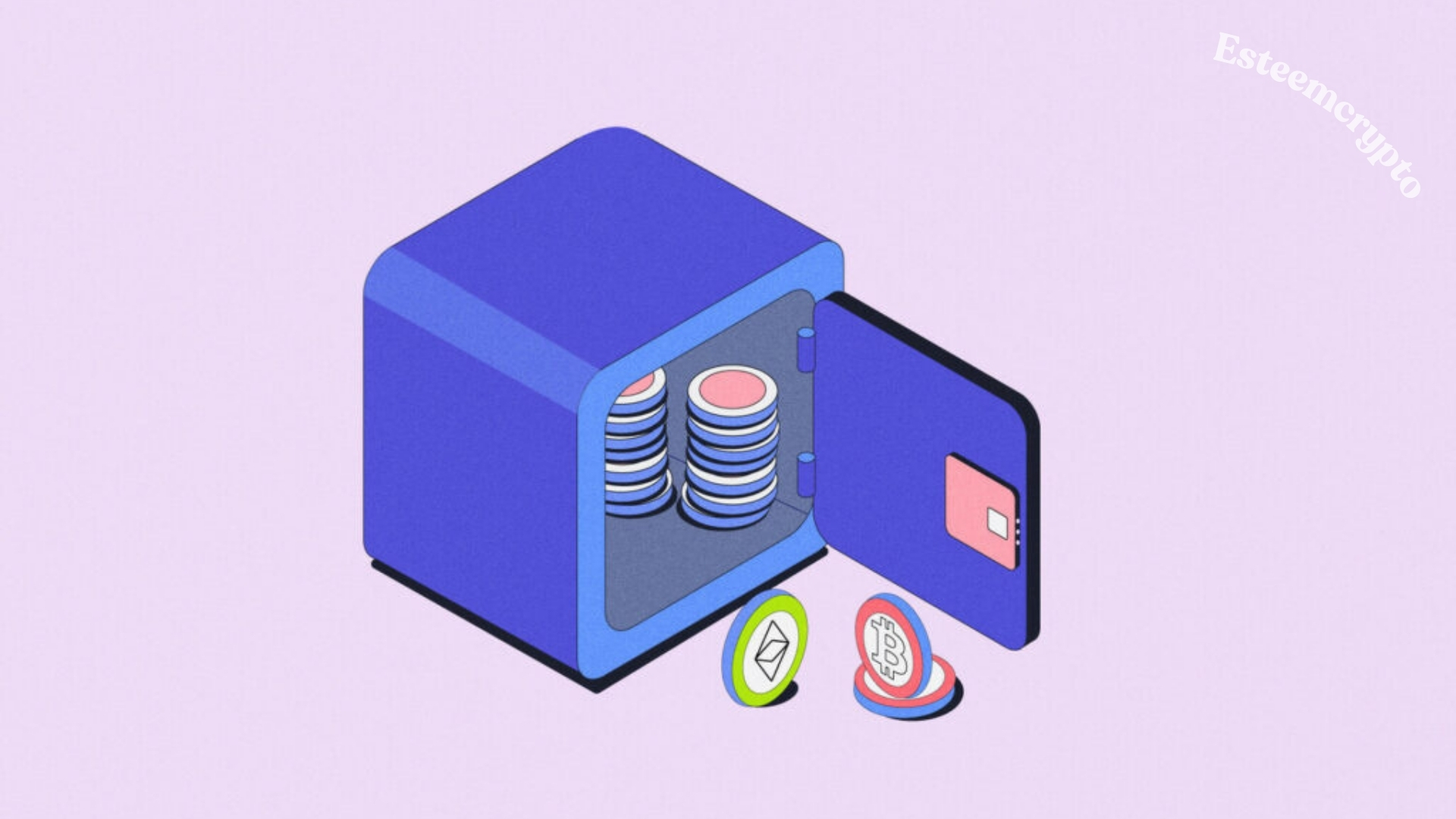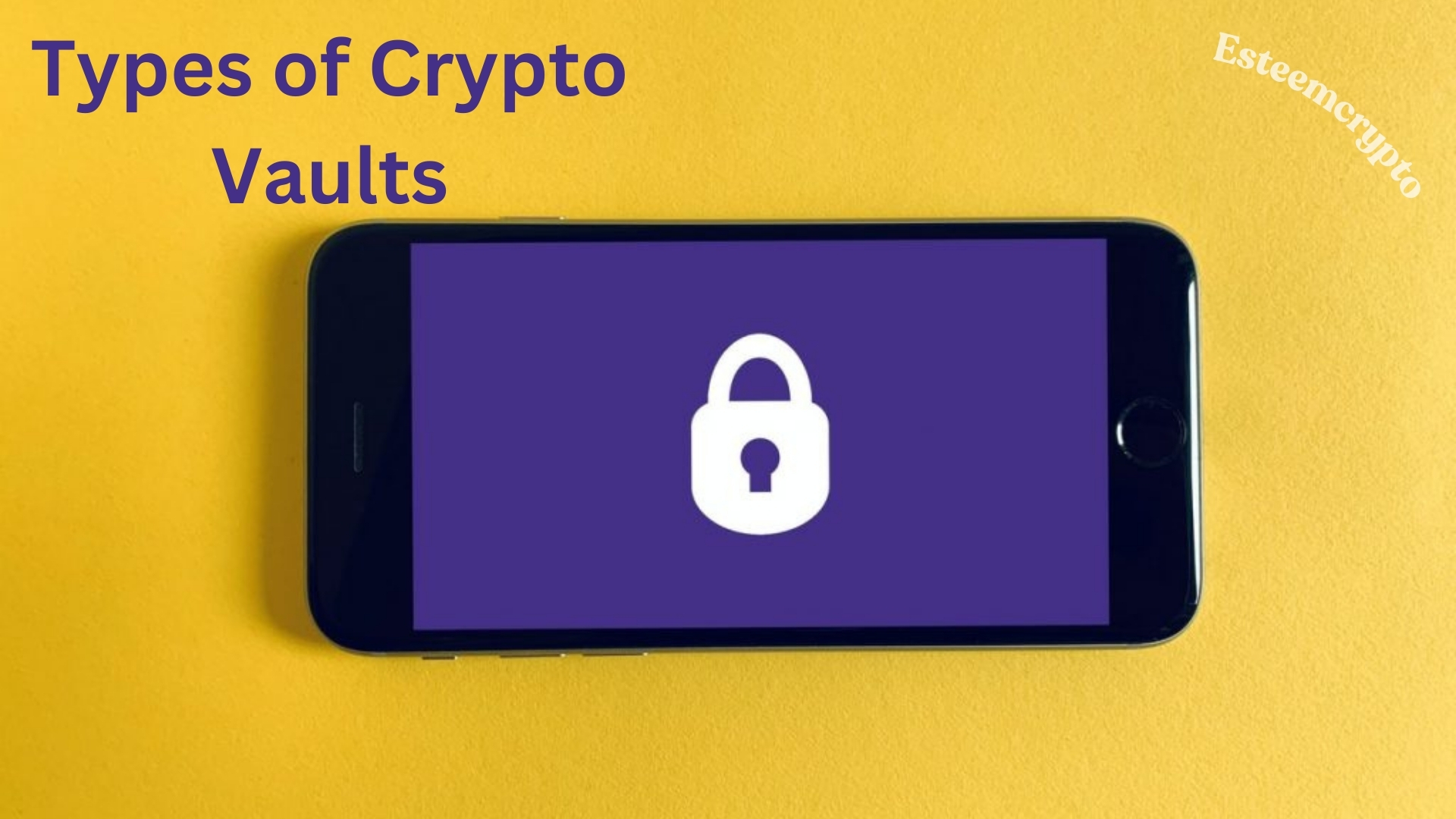Crypto Vault—What is it and How Does it Work?

Crypto Vault. Digital assets are better protected from online risks when stored in crypto vaults, which provide offline security with many levels of protection. Cryptocurrency vaults are the next big thing when protecting digital assets, providing much better security than hot wallets or exchange accounts. Offline, these reinforced digital vaults protect cryptocurrency from the ever-present danger of cyber criminals. For investors worried about the security of their Bitcoin holdings, cryptocurrency vaults offer various layers of protection, such as multi-signature authentication, withdrawal delays, and cold storage options.
Crypto vaults are far more secure against hacking attempts than internet-connected hot wallets because they are mostly offline. This air-gapped method is another safeguard against virus attacks, phishing, and unapproved access.
To top it all off, many crypto vaults use sophisticated encryption methods and demand many authorizations before approving each transaction. Crypto vaults protect your digital valuables whether you’re an experienced investor or starting one.
Types of Crypto Vaults

Crypto vaults come in various varieties, each with security features and functionality for keeping digital assets. Some models include intelligent contracts, time-locked vaults, multisignature vaults, and hybrid vaults. Blockchain technology automates security safeguards using pre-defined code in smart contract vaults, improving control and transparency over digital assets. To discourage hasty decisions and break-ins, time-locked vaults postpone withdrawals. Customers can personalize their security settings with both.
Multi-signature vaults enhance security through collaboration and consensus and demand several transaction permissions. For minor transactions and substantial holdings, hybrid vaults combine the best hot and cold storage, making them convenient and secure. This balanced approach meets users’ different needs by providing a range of configurable security choices.
How Does a Crypto Vault Work?
Regarding deposits, transactions, and withdrawals, crypto vaults use robust security procedures and offline storage to keep digital assets safe. Protecting digital assets by reducing their susceptibility to internet risks is the primary function of crypto vaults. Initiating the transfer of assets to a safer environment usually starts with the user transferring cryptocurrency from a hot wallet or exchange into the designated address of the vault.
The vault uses encryption techniques, multi-signature authentication, and offline storage solutions (such as hardware wallets or air-gapped devices) to keep the bitcoins once they are deposited safely. That way, the assets are safe from cybercriminals and other cyber threats.
Crypto Vault: All of the safeguards in the vault are operated whenever a user wants to withdraw funds or start a transaction. Intelligent contract execution, time-based delays, and multiparty approvals are some of the processes that may be in place, albeit they differ by vault type. This procedure verifies the legality and authorization of all financial dealings.
After the necessary authorization procedures are finished and any delays have passed, the vault will send the requested amount of cryptocurrency to the given address. This usually entails creating a verifiable and transparent transaction on the blockchain network. Reputable vault providers routinely perform audits and monitoring to ensure the utmost security. These measures, including audits, vulnerability assessments, and transaction logging, may be implemented to keep the vault’s system secure and operational.
Difference Between Crypto Wallet and Crypto Vault
Crypto vaults provide increased protection for the long-term storage of more significant sums, while crypto wallets are made for easy transfers. Both online and offline cryptocurrency wallets are mainly made to handle smaller quantities of cryptocurrency and facilitate frequent transactions. They emphasize user-friendliness and speed, making sharing, receiving, and managing assets easy. However, due to their internet connectivity or susceptibility to physical theft, they are more likely to be targets of hacking attempts and illegal access.
Contrarily, crypto vaults serve as reinforced digital safes, placing utmost importance on security. Offline storage, enhanced encryption, withdrawal delays, and multi-signature authentication are just a few security measures they use. This significantly strengthens their defenses against cybercriminals, phishers, and other online dangers. Because of their added protection and peace of mind, crypto vaults are perfect for long-term storage of substantial quantities of cryptocurrency.
Advantages of Crypto Vaults

Cryptocurrency vaults use multi-signature verification, withdrawal delays, and offline storage to prevent unwanted access and internet dangers. Vaults for cryptocurrency provide layers of protection beyond that of ordinary wallets. Many parties must approve a transaction using multi-signature authentication, complicating unauthorized access.
Withdrawal delays give users more time to spot and maybe cancel fraudulent transactions. Thanks to these strong security standards, your digital assets are better protected from hackers, theft, and illegal access.
One of the biggest worries about cryptocurrencies is the possibility of unauthorized access; however, crypto vaults are built to help reduce this risk. By requiring several approvals and including time locks, crypto vaults create significant obstacles for unauthorized individuals trying to acquire control of the assets. The stored assets are exceedingly tricky for hackers due to the powerful encryption algorithms utilized by crypto vaults, which further secure private keys and critical information.
Crypto vaults commonly offer cold storage wallets and other offline storage alternatives. These precautions ensure the safety and security of users’ Bitcoin holdings by. Preventing the transmission of private keys and other sensitive data over the Internet.
Risks Associated with Crypto Vaults
Though safe, crypto vaults come with potential drawbacks, including. Provider, cost, and accessibility issues, as well as technical complexity and hazards. There are benefits and disadvantages to using crypto vaults. Compared to traditional wallets, their security features frequently make them less user-friendly and difficult to manage.
Due to delays or repeated approvals, withdrawals might be problematic for consumers who need their money urgently. Furthermore, some people may struggle with the technical aspects of vault setup and management, which might result in mistakes.
The risk connected with the vault provider should also be taken into account. Users’ assets may be jeopardized if the supplier encounters security breaches, technological malfunctions or declares bankruptcy. Due to limited customer assistance or recovery measures, retrieving lost credentials or access to the vault might also be challenging. When assessing the pros and cons of greater security, consumers should consider the prices certain providers charge.
Also Read: Bitcoin Pizza Day: An Ultimate Guide By Tetrabitcoin




